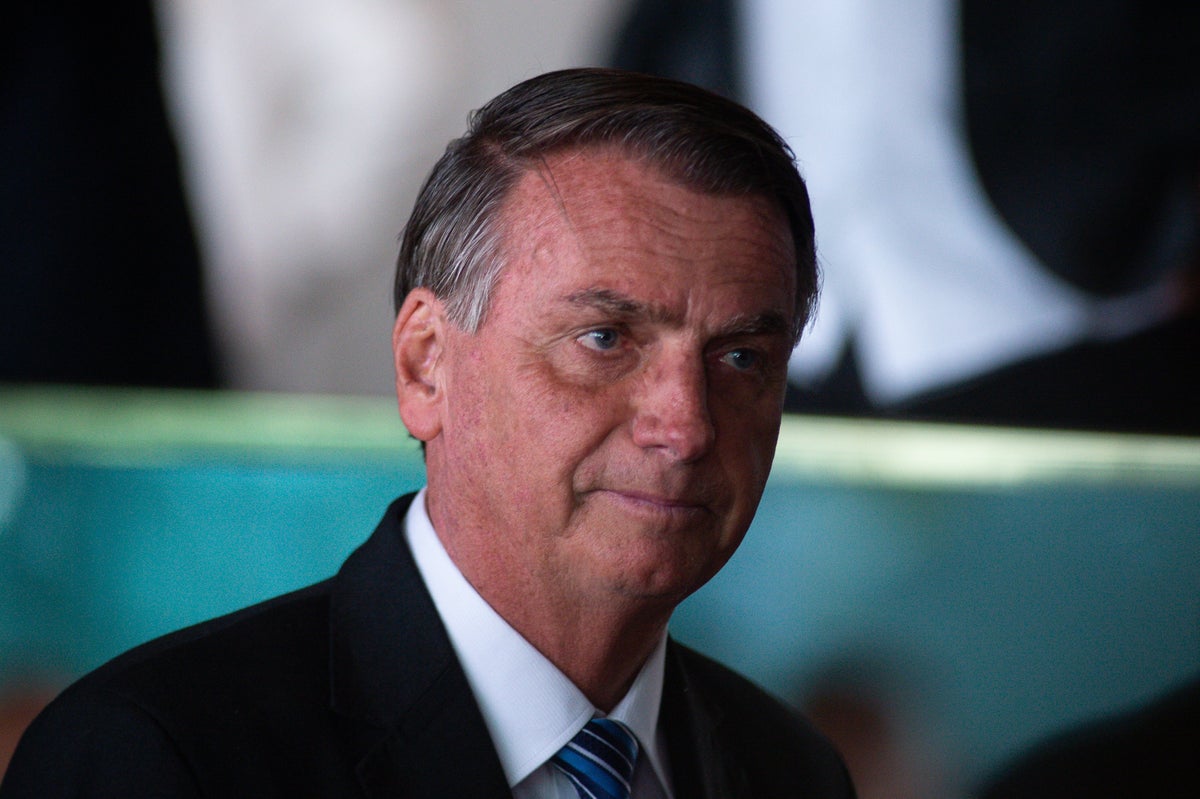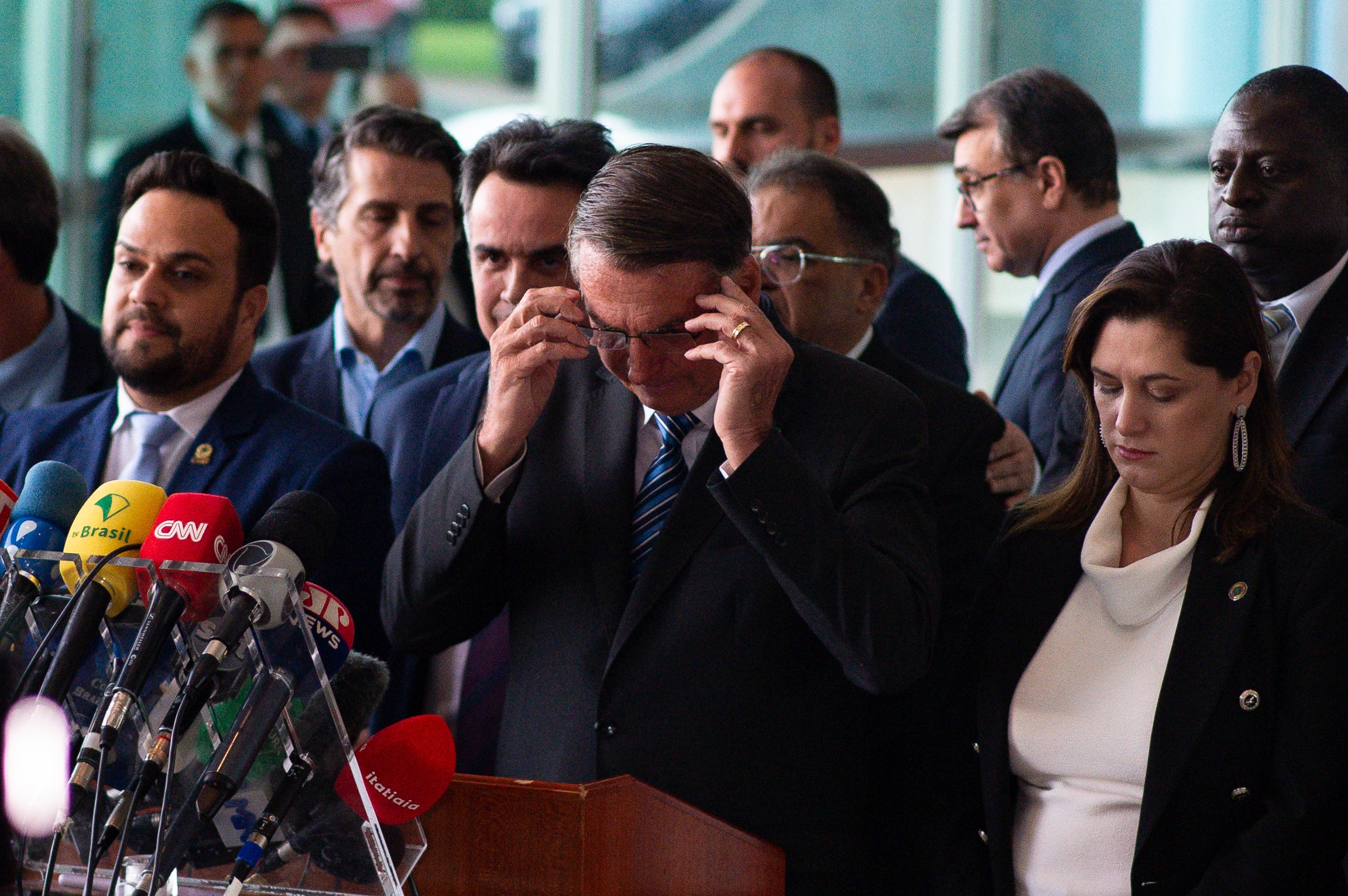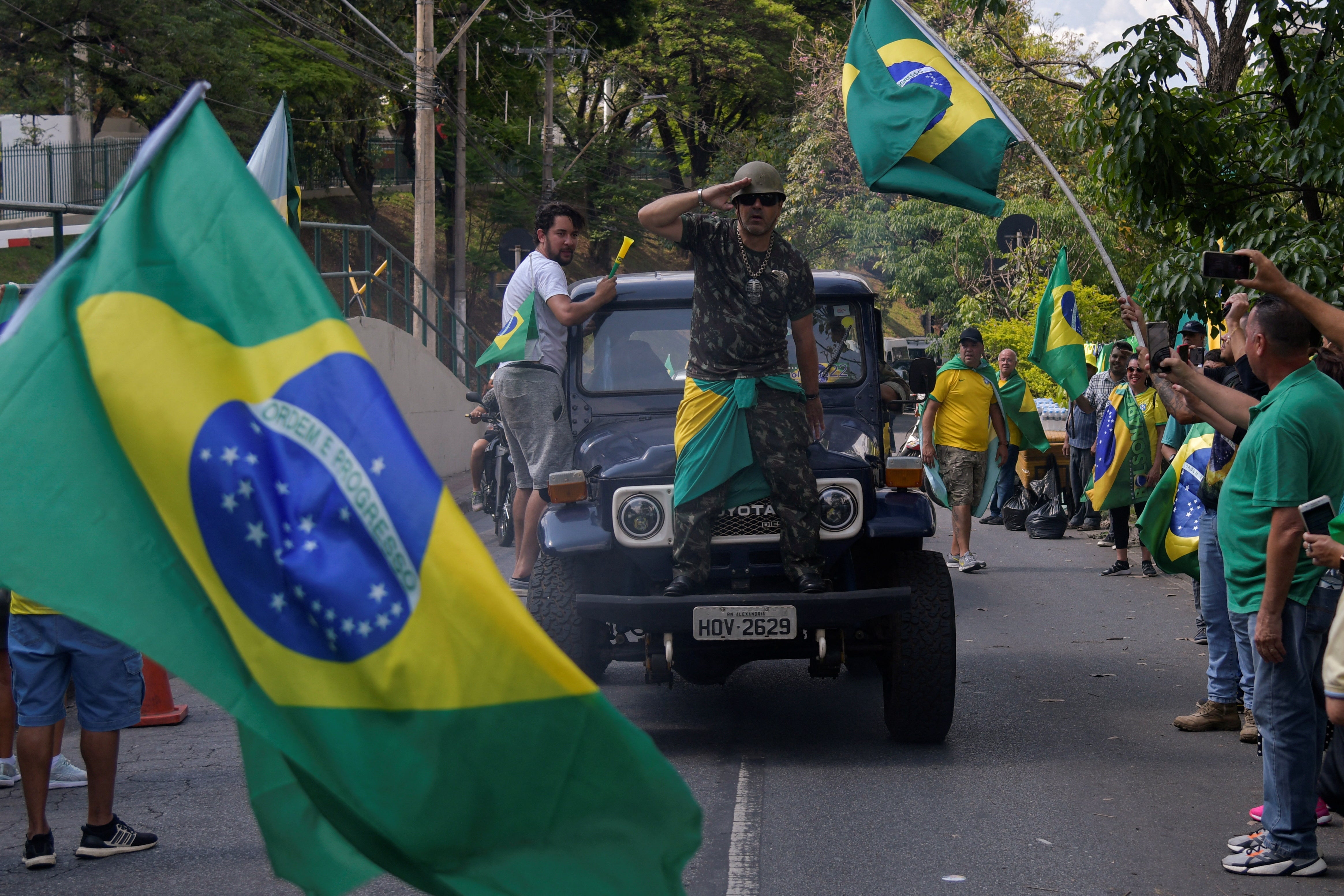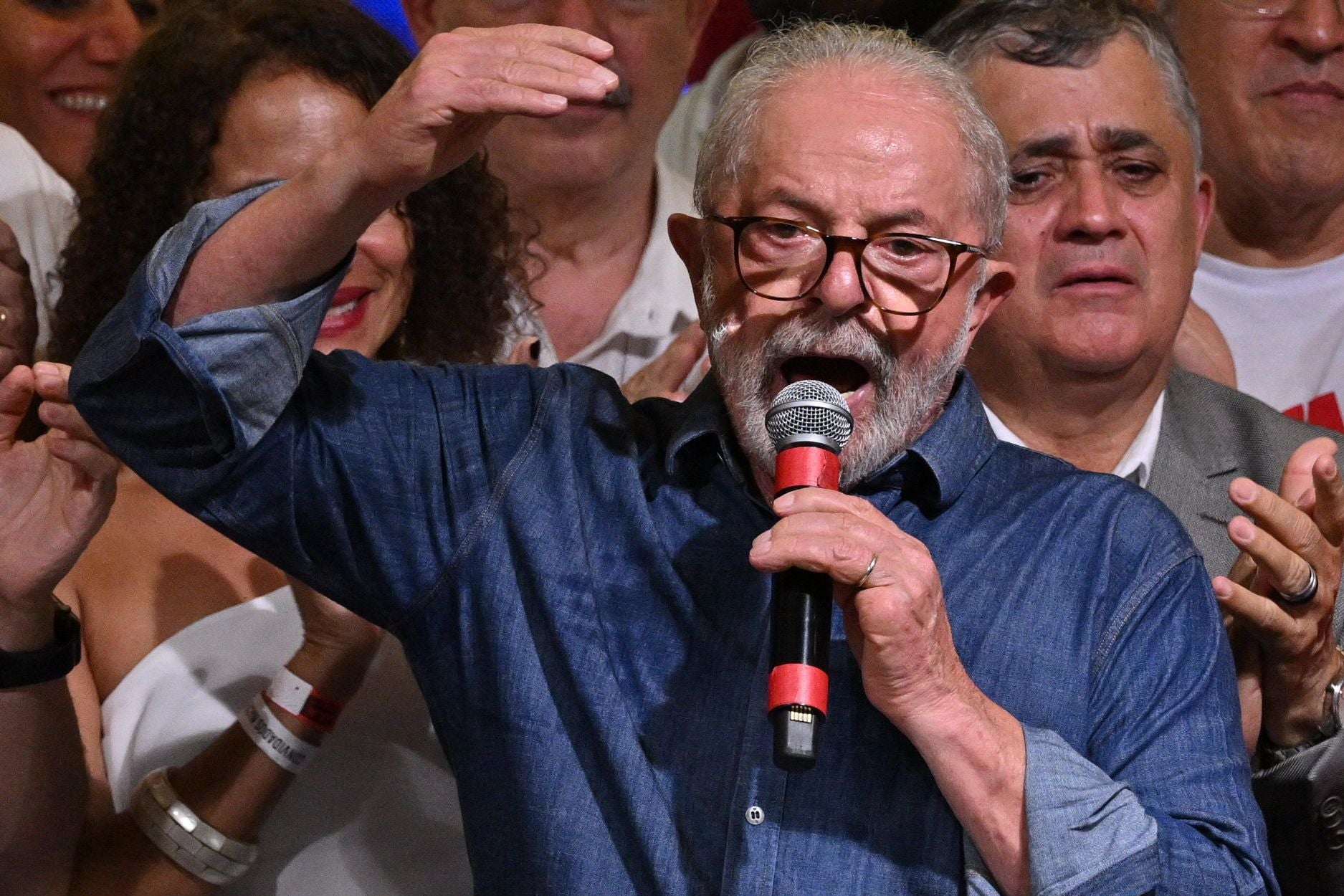
In his first public statement since losing Brazil’s presidential election, Jair Bolsonaro failed to concede victory to his opponent, Luíz Inácio Lula da Silva. Two days after his loss, he also defended widespread protests by his supporters as an outpouring of “indignation and a sense of injustice”.
However, the hard-right president’s chief-of-staff Ciro Nogueira confirmed afterwards that the transition to the new administration would now get underway with liaison beginning with Lula’s team.
It remains to be seen whether Bolsonaro’s somewhat ambiguous statement would end the action of his followers, who had set up roadblocks across the country, called on the military to carry out a coup, and are planning mass protests on Wednesday, Brazil’s “Day of the Dead”.
There has been widespread concern that Bolsonaro, described as “Trump of the Tropics”, would refuse to accept the outcome of the election, having regularly claimed that the election would be stolen from him.
In his statement at his official residence in the capital Brasilia on Tuesday afternoon, the president did not mention the outcome of the vote once. He was narrowly defeated by his opponent after taking 49.1 per cent of the vote to Lula’s 50.9.
But he wanted to stress: “I have always been labelled as antidemocratic and, unlike my accusers, I have always played within the four lines of the constitution.
“We’re for order and progress and stand for God, fatherland, family and freedom. As president and as a citizen I will continue to follow all the commandments of our constitution... Our dreams are more alive than ever.”

While Bolsonaro, a 6-year-old former army captain, remained silent for two days after the election, his supporters took to the streets and put up barricades, halting supplies getting through and leading to the cancellation of dozens of flights from Sao Paulo’s international airport with access routes blocked.
The head of Brazil’s Supreme Court, Alexandre de Moraes, warned the protests were becoming “a risk to national security” and ordered that the roads be cleared. However, more than 260 were still being blocked with most of the country affected.
The roadblocks were mainly put up by truckers who have been a powerbase for Bolsonaro and have benefitted from low diesel prices under his administration. Police cleared some of the barriers but there was also footage on social media of them helping to set them up at a few places.

The Federal Highway Police (PRF) have been accused of attempting voter suppression in the northeast of the country before the vote. The day before the polls, Silvenei Marques, asked people on his social media platforms to vote for Bolsonaro.
Judge Moraes said officers who sought to prevent voting from taking place faced criminal charges.
WhatsApp groups of Bolsonaro supporters, including former members of the armed forces, celebrated the road closures. And the mood among many of his hardline followers was to continue with the protests.
Eduardo Teixeira, a 2-year-old mechanic, said after watching Bolsonaro’s address on television “the president was pointing out that he is a man of principle. You could sense that he did not think the result was correct. We have every right to continue to demonstrate”.

His companion Xavier, a former policeman, added “people are very angry at what has happened. They were in a shock for a day and then they came out onto the streets. I don’t think everyone is just going to stop, our country’s future is at stake.”
Lula, who is due to be inaugurated on 1 January, said there was an urgent need for Bolsonaro to accept the will of the people.
“I need to know if the president we defeated will let there be a transition,” he said. “We need to start preparations to govern this country.”
He repeated his pledge to unite a divided nation, saying: “I will govern for 215 million Brazilians, and not just for those who voted for me. There are not two Brazils. We are one country, one people, one great nation.”







